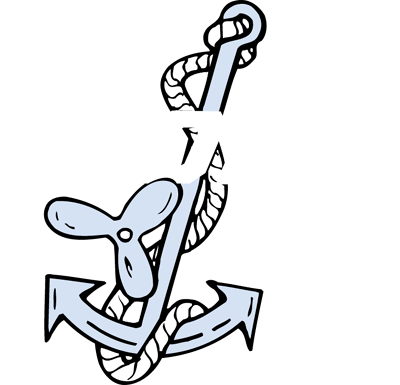Coast Guard Regulatory Changes
The June 29, 2009 Federal Register contained publication of a final rule which will enact several changes to the Coast Guard’s Suspension and Revocation (“S&R”) procedures. The preamble states that the Coast Guard believes that the changes are internal and administrative in nature, relating to internal Coast Guard organization, and have no substantive effect upon the rights of mariners or the public. Notwithstanding that asserted view, and upon review, it appears that the changes may have some peripheral consequences for mariners, and they are in any event at least sufficiently noteworthy to call to the attention of MOPS attorneys and insureds:
- The powers of the commanding officer of the National Maritime Center (“NMC”) will be broadened to include the power to refer S&R cases to the recently established “S&R National Center of Expertise” (“NCOE”), located at the NMC in Martinsburg, West Virginia. This is in addition to the current procedure of referring cases to the processing Regional Examination Center(“REC”), or to the local Officer in Charge, Marine Inspection (“OCMI”). According to the Coast Guard, this will broaden the “Team of Coast Guard personnel” who may handle S&R cases, but (and again, this is according to the Coast Guard), will not affect the process or procedures for the mariner who is the subject of an S&R case. COMMENT: This is part of the Coast Guard’s drive to centralize licensing functions in the new NMC facility in West Virginia. To date, the effort has been plagued with many well-publicized problems involving inordinate processing delays and significant under-staffing. As an example, mariners have recently been forced to wait many long months for license renewal applications to be processed by the new NMC, particularly when a medical waiver is involved, whereas under the previous procedure, they could walk into their local REC and get the applications processed in a matter of days, and often in an emergency, on the same day. Until the Coast Guard gets its centralization problems ironed out, don’t be surprised by longer delays in the handling of any S&R issue, and that will have some effect upon the rights of the mariner;
- IO’s at the NCOE will now be authorized to initiate S&R proceedings by issuing complaints directly against mariners, conducting investigations and handling all other aspects of S&R case processing. Currently this is done by an OCMI, or more typically, by a local IO appointed for that task by the OCMI. COMMENT: Many of the important functions performed by an IO must be done at the local level, such as boarding a vessel, conducting an investigation and taking witness statements, etc. Quaere: how will NCOE handle that from afar? I would here note, too, that many of those same local IO’s are frequently not well versed in regulations or drawing up complaints or in correctly setting forth all of the elements of their claim against the mariner. Possibly the Coast Guard hopes to remedy this shortcoming (well known to most attorneys who have ever defended license actions brought by the Coast Guard) with a staff of “experts” at NCOE who will be better versed in the finer points of legal practice and procedure. Whether that result will in fact occur, and how smoothly this additional administrative layer will get integrated into the Coast Guard bureaucracy, remains to be seen. Certainly administrative delays and turf wars, always foreseeable in large reorganizations of this nature, will do nothing to advance the rights of the mariner.
The full text of these regulatory changes can be found in the Federal Register, Vol. 74, No. 123, Monday June 29, 2009, pp. 30935 et. seq. (FR Doc. E9-14784, filed 6-26-09.) Because the Coast Guard determined that these changes affected only its internal agency delegation of authority and the functioning of its internal organization, the final rule was printed without prior notice and without public comment and is to become effective without further action within 30 days of its publication.
